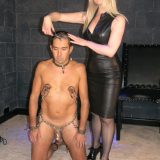Gift for a Priest
A Gift for a Priest by Jim Belala
Chapter I
It was thirty years ago that Lucas was born to Maria de Neto, of Italian descent, and Red Wing Lee, of half Japanese and American Apache descent, in a small Indian village of New Mexico. It was a damp rainy morning, with heavy thunderstorms. While his mother laid in the family’s cabin, giving birth to him with the help of Apache midwives, his father was embroiled in the faith of both his forefathers, praying for the end of the rain and the birth of his child.
His Apache grandfather sat before the warmth of the open fire smoking a peace-pipe to bring goodwill to his grandchild as his grandmother sat next to her daughter-in-law chanting a prayer of a safe birth. His father took a puff of the pipe, handed to him by his father, then entered the chapel of his mother. There before him was the golden statue of Buddha, given to him by his mother’s family before leaving Japan to study in America. Here he asked Buddha for goodwill for his child to be born, and the continued goodwill between him and his wife’s family.
As the sun began to set in the warm cloudy western sky, a cry of a newborn child came loudly from the cabin. His mother appeared in the doorway announcing the birth of her grandson. She then joined in an Apache prayer for the good health of him, “a joyful and long life” was added by one of the midwives.
Watch Hot & Sexy Female Head Shave Videos At Shavepage.com

How his name, Lucas, came to be his no-one knows. Why it was given to him, instead of one of his descents, was unknown. What it meant his Apache grandfather could not tell him.
As Lucas grew his father’s family taught him the ways of the Apache, and other American Indian tribes, while his father told him of his family across the ocean called the Pacific. He enjoyed the many cooking of his mother’s family, pizza became his favorite snack. At the age of nine his parents sent him to Italy to spend the summer with his grandparents.
There he learned the language, both in words and hand. There he saw the history of a country that would come to a country that no-one thought was. The many structures of its past, mixed in with the new. A place that war could not destroy, even by itself.
When he returned his mother was pleased, as were his father’s parents, that he had in such a short time, learned the language she had not spoken for many years. In school he became a teacher of this language, many young girls became wild-eyed with the softness of its sound. It would be another six years before he would meet his father’s other grandparents, those who had vanished their daughter for her marriage to a “wild race of man”. One who prayed to two Gods, one of “gold” and the other of “wood”.
It was hard for him: had it not been for his cousins, he would have returned home without them knowing. Instead they taught him of his family, and the history of a country who tried to rule the world and the shame they had faced since. He learned how faithful this side of his family was. A belief in prayer to a statue of gold, sitting, knees crossed, in piece. About the men and women who gave their lives walking the country teaching others of this “God” they called “Buddha”. His ways were of prayer, fasting, and thought.
Again when he returned he surprised his family with the language he had learned, the one his father had never spoken. He taught his father, as well as some of his friends, the words that he would say in prayer to the “golden” statue of his father. He brought back with him the little sticks which he had been taught to eat with, to use them when enjoying his mother’s cooking.
At the age of eighteen his left his family to go to a city of Mexican descent, a city called “The City of Angles”. There he would met others of his family countrymen, from the Far East, from New Mexico, and some from his mother’s homeland. He had learned the languages well, and had fun with his teachers with them. They came in handy for someone studying the history of the world.
Six years later he returned to his father’s land of Japan to study more of this “God” called Buddha. To walk as he did many, many years ago, to pray, to beg for food, and to become a teacher. His return to his tribal home was for one of death, the death of his father and grandfather. Their lives taken away in weather that had given him birth. His mother pasted to him the “Golden God”, for him to cherish like his father. One of the many faiths he had learned to pray to.
After many months, seeing that his mother and grandmother were taken care of, he returned to Los Angles, where he became a member of the staff of the well known archaeologist Randolf C. Ives.
Dr. Ives had been studying the history of ancient Japan and China. For him it was a blessing to have Lucas join his staff, a young man with such a family background. One that crossed the boundaries of two oceans, and different cultures, as well as different Gods.
Lucas would join Dr. Ives in all his trips, fast he became Dr. Ives’ right-hand man. As the years of work passed Dr. Ives would allow Lucas to make decisions, decisions that would determine the history of mankind in a country of many languages but of one culture. One where one’s body was to be given at a wish of a person who was called “a Lord”. One who would roam as the leader of men, taking food as well as lives.
When Dr. Ives opened his small, but interesting, museum of oriental history, it was “Lucas Blue Sky Lee” he chose to head it and become its chief curator. As the chief curator he would make many trips to the home of his grandparents. There he would live their lifestyle, to learn more about their history, and to bring his father back into their life. He told them of his trips to his mother’s family and he spoke their language for them. He told them of the many mountains of his family, the many nights he and his parents would sit under the star light sky as they told him of his ancientry. How he had learned the ways of Gods of them, and had enjoyed the cooking and lifestyles.
It was on one of his trips to the Island of Okinawa that he met a young lady of Spanish/Mexican decent, her name was Bicca. She had long dark hair that shined in the sunlight, and moved in waves when she walked. Her skin was dark, not from the sun; her eyes were black like a cat, but her words were of softness and enjoyment. She was two years Lucas’ senior and five inches shy of his height, and “light as a feather” as he would say to others. She too had learned the language of Japan, but of another dialect.
Like Lucas she had studied the history of “Buddha”, but had not taken his teachings as a second religion. Like him she had been born in a small cabin, during stormy weather. But, unlike him she was an independent archaeologist, working with grants from universities to increase their studies. To guide their students on trip across the Far East, and to teach.
While Lucas was satisfied with his Masters, Bicca worked to advance herself to her Doctorate in Oriental history. Being a Doctor of Archaeology would give her a better chance at bigger grants, and more knowledgeable with publishers for her books and papers.
Many times he would offer her small grants to enlarge the museum’s vast pieces of Japanese history. They looked forward to working with each other, both had come to enjoy their little times.
They had been friends for ten years when Lucas introduced her to his friend Grace Monroe. Grace was a History major of the Buddha and the Buddhist religion. Her parents, both of European descent, had taken up Buddhism after they had wed, and had raised her in the belief of Buddha and his ways. She, like Lucas, had been handed down a golden statue of Buddha by her parents. Like her mother she had become a priestess of his teachings, and taught at a monastery back in Los Angles.
Lucas had recommended that Grace teach Bicca a little of the history of Buddha, so she could understand the ways of the Oriental countries better. Bicca welcomed the idea and thought she could do her paper on why people outside the Orient would embrace Buddhism. Given her workload, she and Grace agreed it would taken more time than usual, thus Grace had agreed to join her on many of her trips.
It was on one of these trips that Grace had found a hidden monastery in the hills of Japan. One where the people were Buddhist and lived their lives as Buddha. When they were not in the fields, they were praying to Buddha for happiness and health. It was on this trip Bicca learned about the men and women who served Buddha as priest and priestess. The many hours of quietness and prayer, fasting until almost dead.
Grace had become a welcome member of the community, and decided to embrace her position as priestess to learn more from them. For Bicca it would become a waking experience, into something yet to come to her.
The night was clear, the moon was full. You could hear the sounds of the crickets, of the running waters of the ponds, both natural and man-made. They were sitting and enjoying a cup of cold tea, when the sound of the ringing of the monastery broke the silence of the quietness.
“Come” Grace told Bicca as she held out her hand. “You must see this to understand what a woman gives to become a priestess for Buddha”.
With that they walked the dry mud way to the monastery a mile to the pond. There the villagers assembled in a circle around two young girls dressed in white robs. Their hair, long and silky, hung down their backs, as they faced each other. Between them was a small wooden table, no higher than three inches. On it was two large opened bowls, the tops of which lay next to them. A large white cloth, covering something, lay between the bowls.
When the villagers had all assembled, a short man wearing an orange and cream colored rub rose and walked to one girl. Her head bowed in silence, he tied her hair together with a long strip of bamboo. He walked to the other girl and did the same.
As he positioned himself to the side of both girls, two women came up to them and removed their robes. They, two girls still of childhood, stood naked before all to see. Not a word or sound was said as they knelt their blistered knees on a bamboo pad. They bowed to each other, then to their parents sitting on the other side of the priest. With their heads still bowing they turned their body to the Priest and lay their upper body close to the ground.
He bowed to their parents, then to each girl. He said a short prayer as he placed his hand on each one’s head. After touching the girls head they raised their body and bowed again to each other.
A woman, dressed in the same color robe as him, knelt across from his and bowed to him. She then unfolded the cloth exposing the object it covered. Taking it and holding it with both her hands, she bowed to him and the girls. Two other women, dressed the same, brought to the table a large bowl of water each. They each placed their bowl in front of the young girls.
After bowing to the priest and the Priestess each Nun, as Bicca would find out, placed her hands in the bowl before her and brought out a small wooded cup with water in it. They poured the cup of water of the head of each girls, then they took hold of the hair, below the bamboo tie, and held it tight. The Priest motioned the girl to his right to bow her head until she could not do so. This pulled the girl’s hair tight.
The Priest then took the object from the hands of the Priestess, and bowed to the young girl. He rose and walked to her right side.
After saying a silent prayer he bowed to the girls parents, then to her. He knelt next to the girl and brought the object to her forehead. As Bicca watched she noticed that the object was a strip of metal which had been sharpened on one side, and one end of it had been wrapped in bamboo strips, to make a knife.
Bicca turned to Grace to inquire what he intended to do, but Grace placed her hand over her mouth to prevent her from speaking. She then placed her finger over her lips, indicating for her to be quiet and then motioned her to watch.
The Priest then begin shaving the hair from the girl’s head. Slowly the stains of hair were shaved, each short stroke baring the girl’s head and the whiteness of her scalp began to show. The girl knelt crying, as did her parents and siblings. Soon he had shaved the right side of her head, had bowed and walked to the left side. There, as he had on the other side, he said a silent prayer, bowed to her parents, and shaved the rest of her head.
When her hair had been shaved from her head, her body fell to the ground. Her head fell between her knees as she cried and prayed in silence. The Priestess behind her held the shaven hair between her hands, bowed to the girl’s parents, and placed the hair in the bowl before the girl.
The Priest bowled to the girl’s parents and offered them a silent prayer, then bowed to the girls, and walked to the right side of the other girl.
There he did the same, bowing to her parents and then shaving her head of her hair. After the Priestess had placed her hair in the bowl, they bowed to the parents and priest and walked away.
The Priest then said a prayer out loud, with each girl responding. They rose their body to face each other. The parents of each girl were allowed to embrace her for a moment, then they bowed to her and the Priest and left. After the parents had walked out of sight, the villagers began to bow and leave.
Bicca rose, as to leave, but was stopped by Grace. “Wait”, she softly said, and rose and walked to the Priest. They spoke in a dialect in which she was not knowledgeable. After bowing to each other Grace returned to Bicca.
“I asked the Priest, as a favor to me and explained why you were here if we could stay a watch the rest of the rites,” she explained to Grace. “He said it was alright and was delighted that a Priestess from America, and her friend were interested”.
They followed the priest, the two Nuns, and the two girls to a large backroom in the rear of the chapel. The room was lined with many statues of Buddha and his important followers, about whom Grace told Bicca she would tell her later. The large floor was covered with a rug made of colored bamboo, depicting the many adventures of Buddha and the history of the monastery and the village.
The Priest walked to the statue of Buddha, bowed, and knelt and began praying in silence. The two girls were led to the center of the room by the Nuns, there the girls each lay on a small bamboo bed covered with a large white cloth.
“The Nuns will shave the rest of the girls’ body of hair,” she whispered to Bicca as they knelt on the side. “This is to tell Buddha what they will give to learn his teachings and to bring it to others.”
They watched as the Nuns slowly poured water over each girl and took objects like the Priest used, and shaved the girls from their head to toes. First was the front of their body, then the back, and finally the sides.
When they were completely shaved each girl was required to brush, with their hands, the shaven body hairs; then to place them in the same bowl with the hair from their head. With this task completed the Nuns brought the girls a cream colored robe and helped them to place it around their hairless bodies.
Each girl then picked up the wooden bowl, containing her head and body hair, and walked to the altar and knelt to either side of the Priest. They bowed to Buddha and the Priest, and placed the bowls in front of the Priest. After a short silent prayer the girls bowed to Buddha and the Priest, stood and walked out of a side door with the Nuns behind them.
The Priest then poured the hair in the two bowls into a larger one. Taking it in his hands he raised it in offering to Buddha, bowed and sat it in front of the statue. As he stood and walked away the bowl gave a “proofing” sound and a small fire begin to burn in the bowl.
After they left the room Bicca asked Grace what it was she witnessed, and why.
“When a man or woman gives their self to the following of Buddha, either as a Priest, Priestess, or a Nun, they must be willing to take his body, which is a body of hairlessness,” Grace explained. “The burning of the hair is so it will join Buddha in his resting place.
“Each girl will be taught the ways of Buddha, his teachings, and will take upon theirselves the way he lived before his death.
“She will wear no shoes or sandals, she will bathe in the waters of the countryside, pray for hours, and kneel on bare knees. Her head will be kept shaved by the Nuns, and herself, but the rest of her body hair will be allowed to regrow.
“After five years she must decide if she wishes to become a Nun, a Priestess, or return to her village as a child of Buddha, and not a teacher”.
As they walked back to their hut Bicca asked few questions, but asked if there were books she could find more information. Grace said she would she give her a list of some well-written books, many over a hundred years old. And she would let her have some from her own collection to read, when they returned to Los Angles.
Before the went to bed that night, Bicca asked Grace another question, which Grace had been waiting for. “Did you,” Bicca begin asking, “have to do the same thing ….. have your head and body shaved, to become a Priestess?”
Grace smiled at her, “We all had to.”
Watch Hot & Sexy Female Head Shave Videos At Shavepage.com

























